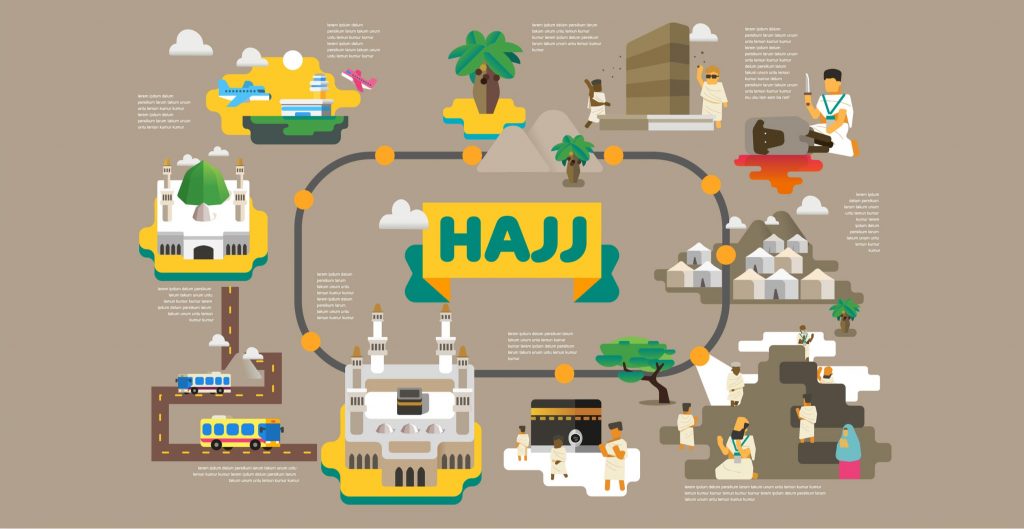Muslims worldwide are anticipating a very different hajj season this year due to the COVID-19 pandemic which has forced Saudi Arabia to cut the number of pilgrims drastically to less than 10,000 people; and they will be from among the locals.
This holy journey includes a series of specific rituals carried out by Prophet Muhammad (PBUH) nearly 1,400 years ago.
Hajj 2020 will commence on Tuesday, 28th of July 2020 and will continue till Sunday, 2nd of August 2020; in the evening time.
? Read Also: Talking to AboutIslam: Texan Muslim Laments Her Cancelled Hajj Trip
This is the tentative date as the actual date is contingent on Dhul-Hijjah moon sighting next Monday, July 20.
“The Astronomical New Moon (conjunction) is on July 20, 2020 (Monday) at 17:33 UT. On that day, the moon can not be seen any where in the world. On July 21, it can be seen with difficulty in India, Pakistan, and Middle East, but easily in Africa, Canada, and Americas,” Moonsighting.com reported.
The website added, “On July 22, the moon can be seen in almost the whole world.”

Hajj on Islamic Calendar
According to the Islamic Calendar, hajj begins on the 8th day of Dhul-Hijjah and ends on the thirteenth day of the same month.
The overarching aim of the Hajj is to strengthen one’s faith and purify him or her of sins. Allah (SWT) mentions the benefits of Hajj as:
“That they may witness benefits for themselves and mention the name of Allah on known days over what He has provided for them of [sacrificial] animals. So eat of them and feed the miserable and poor.” (Quran 22:28)
Hajj consists of several rituals, which are meant to symbolize the essential concepts of the Islamic faith. They also commemorate the trials of Prophet Abraham and his family, may Allah’s peace and blessings be upon them.
Every able-bodied adult Muslim who can financially afford the trip must perform hajj at least once in a lifetime.